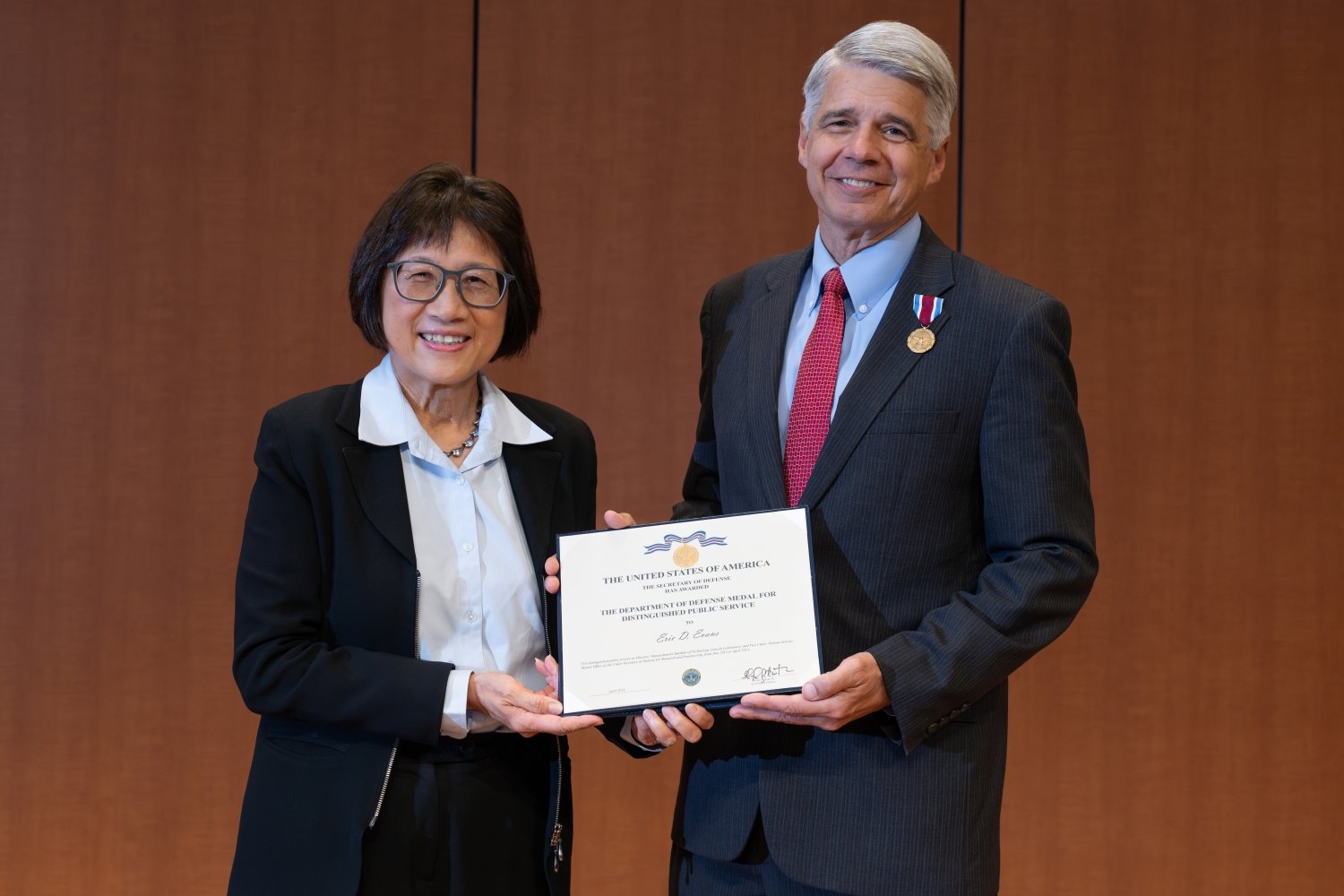
On May 31, the U.S. Department of Defense’s chief technology officer, Under Secretary of Defense for Research and Engineering Heidi Shyu, presented Eric Evans with the Department of Defense (DoD) Medal for Distinguished Public Service. This award is the highest honor given by the secretary of defense to private citizens for their significant service to the DoD. Evans was selected for his leadership as director of MIT Lincoln Laboratory and as vice chair and chair of the Defense Science Board (DSB).
“I have gotten to know Eric well in the last three years, and I greatly appreciate his leadership, proactiveness, vision, intellect, and humbleness,” Shyu stated in her remarks during the May 31 ceremony held at the laboratory. “Eric has a willingness and ability to confront and solve the most difficult problems for national security. His distinguished public service will continue to have invaluable impacts on the department and the nation for decades to come.”
During his tenure in both roles over more than a decade, Evans has cultivated relationships at the highest levels within the DoD. Since stepping into his role as laboratory director in 2006, he has advised eight defense secretaries and seven deputy defense secretaries. Under his leadership, the laboratory delivered advanced capabilities for national security in a broad range of technology areas, including cybersecurity, space surveillance, biodefense, artificial intelligence, laser communications, and quantum computing.
Evans ensured that the laboratory addressed not only existing DoD priorities, but also emerging and future threats. He foresaw the need for and established three new technical divisions covering Cyber Security and Information Sciences, Homeland Protection, and Biotechnology and Human Systems. When the Covid-19 pandemic struck, he quickly pivoted the laboratory to aid the national response. To ensure U.S. competitiveness in an ever-evolving defense landscape, he advocated for the modernization of major test ranges, including the Reagan Test Site for which the laboratory serves as scientific advisor, and secured funding for new state-of-the-art facilities such as the Compound Semiconductor Laboratory – Microsystem Integration Facility. He also strengthened ties with MIT campus on research collaborations to drive innovation and expand educational opportunities for preparing the next generation of the DoD STEM workforce.
In parallel, Evans served on the DSB, the leading board for providing science and technology advice to DoD senior leadership. Evans served as DSB vice chair from 2014 to 2020 and chair since 2020. Over the years, Evans led or supported more than 30 DSB studies of direct importance to the DoD. Most notably, he initiated a new Strategic Options Permanent Subcommittee focused on identifying systems and technology to prepare the nation for future defense needs.
“The medal is a wonderful and richly deserved recognition of Eric’s contributions to MIT and to national security,” said Ian Waitz, MIT’s vice president for research.
As Evans steps down from his role as Lincoln Laboratory director on July 1, he will transition to a joint appointment as a senior fellow and professor of practice appointment on the MIT campus and as a fellow in the Director’s Office at Lincoln Laboratory. In these new roles, he will continue to strengthen ties between the laboratory and MIT campus and work with DoD leaders.


